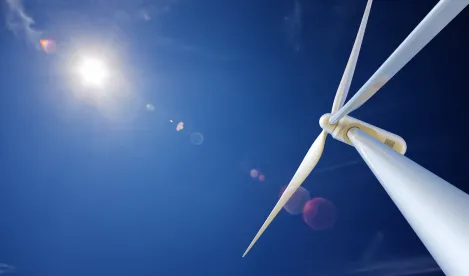On March 27, 2019, Massachusetts’s three electric utilities submitted a draft of their second offshore wind request for proposals (“RFP”) to the state’s Department of Public Utilities (“DPU”) for review and comment. This second solicitation is a follow-up to the initial RFP under Section 83C of Massachusetts’s 2016 renewable energy mandate that directs its utilities to procure 1,600 megawatts (“MW”) of offshore wind nameplate capacity by June 2027.
The initial solicitation in 2017 resulted in the selection of the Vineyard Wind project to enter negotiations with the utilities. The utilities executed power purchase agreements (“PPAs”) totaling 800 MW of offshore wind capacity with Vineyard Wind. DPU is reviewing those PPAs currently. [1]
Even though DPU has not approved the PPAs for the initial solicitation yet, the utilities have moved forward with the second solicitation because Massachusetts law requires that the second solicitation be issued within 24 months of the first solicitation. The second solicitation contemplates procurement of at least 400 MW of offshore wind capacity, although the utilities will consider proposals ranging between 200-800 MW of capacity. According to this draft RFP, the utilities will consider a larger project proposal if it is “likely to produce more economic net benefits to customers based on the evaluation criteria in the RFP.”
Some of the key bidding requirements and evaluation criteria include:
-
Each bidder must be in possession of development rights for offshore wind generation in a designated federal wind energy area (not closer than 10 miles from an inhabited area) as leased after January 1, 2012;
-
Each bidder must submit at least one bid of a 400 MW project, or explain why it cannot, and can submit its projects in up to two phases;
-
Each bidder must propose a generator lead transmission line;
-
Each proposal for the energy generation and/or associated renewable energy certificates must be less than $84.23 per MW-hour on a nominal levelized basis as calculated based on the first solicitation; and
-
Proposals will be evaluated on direct contract prices and other costs and benefits, including:
-
Direct benefits of any applicable energy storage systems,
-
Impacts on Massachusetts’s greenhouse gas emission rates,
-
Specific investments in supply chain infrastructure, port facilities, workforce and the Offshore Wind Accelerator Fund, and
-
Demonstrated direct benefits to low-income ratepayers.
-
As proposed, the utilities plan to issue the RFP on May 17, 2019, and expect to receive confidential proposals by August 9, 2019 (with public redacted versions due by August 16, 2019). The utilities plan to select the winner(s) by November 8, 2019, and finalize the PPAs for DPU approval by January 10, 2020.
In comments on the second Section 83C solicitation, several wind developers raised concerns that a timeline that does not permit developers to demonstrate a construction start by the end of 2019 imperils the developers’ ability to qualify for the 12% federal investment tax credit (“ITC”). The production and investment tax credits are currently phasing out for wind, but wind projects that begin construction in accordance with IRS guidance in 2019 may still qualify for the credits at a reduced rate, specifically a 12% ITC or 40% of the maximum production tax credit rate applicable to electricity produced in a relevant year. Many of the commenters indicate that the 12% ITC is more valuable to their projects.
Although the utilities propose to select the winning bidder(s) before the end of 2019, the timeline in the solicitation does not suggest that the utilities and the winners will execute their PPAs and submit them for DPU approval by 2020. Any activity that the developers undertake to begin construction in 2019 based on the unapproved PPA may expose them to the risk that DPU will reject or modify the PPA after a developer has made some expenditures towards the project.
[1] See Offshore Wind Handbook, K&L GATES LLP AND SNC LAVALIN at 19 (2018), http://www.klgates.com/files/Upload/2018-08_OG_Offshore-Wind-brochure.pdf



 />i
/>i

